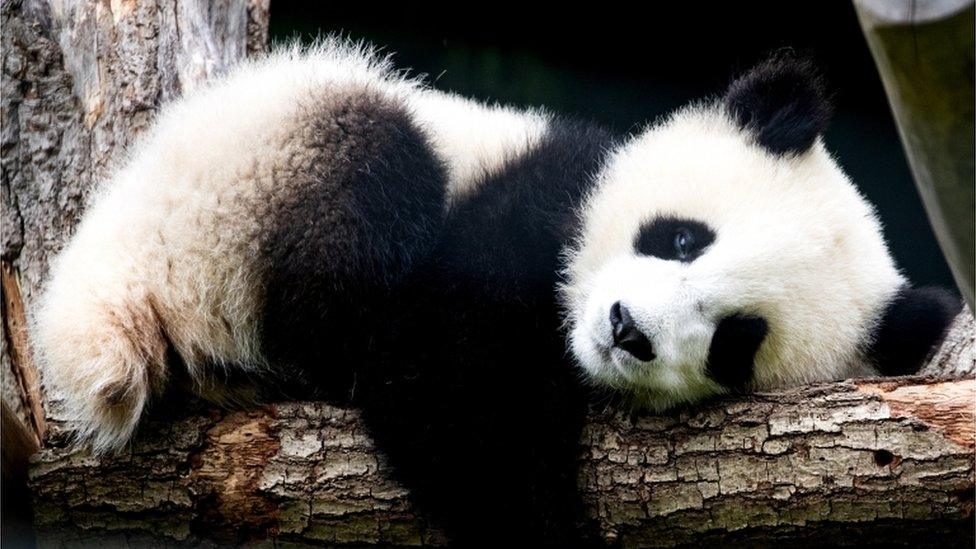How has saving the panda affected other species?
- Published
- comments

Pandas are no longer an endangered species
Lots has been done over the years to protect pandas that were previously at risk of becoming extinct.
Conservation efforts in China have involved actions like creating special reserves and bringing existing panda populations together to help stop their numbers falling.
Now, panda numbers are slowly increasing and they're no longer considered an endangered species.
Many other animals have also benefitted from efforts to protect the panda, but it's had a negative impact on some other species according to a new study.
Snow leopard numbers in China have fallen over the years
Big cats like leopards and snow leopards, wolves and Asian wild dogs have almost disappeared completely from many of the pandas' protected areas.
Since panda reserves were created back in the 1960s, these reserves have seen an 81% drop in the number of leopards, 38% fall in the number of snow leopards, a 77% decline in wolf numbers and a 95% drop in the number of Asian wild dogs.
Researchers in China believe these animals could now be facing extinction. They all play a critical role in the food chain and without them, deer and other livestock could end up causing damage to natural habitats.
Special reserves were created for pandas in China during the 1960s to help tackle the decline in their numbers
"These findings warn against the heavy reliance on a single-species conservation policy for biodiversity conservation in the region," said Sheng Li who is part of the team that led the study.
They believe the huge drop in numbers most likely took place during the 1990s because of poaching, disease and logging, which is when trees are cut down to be used for other purposes.
"Efforts to maintain threatened biodiversity must also address human activities at the wider ecosystem-level, otherwise non-target species might continue to slip away unnoticed," said Prof Turvey from the Zoological Society of London.
- Published19 August 2018
- Published1 February 2019
- Published16 March 2020
